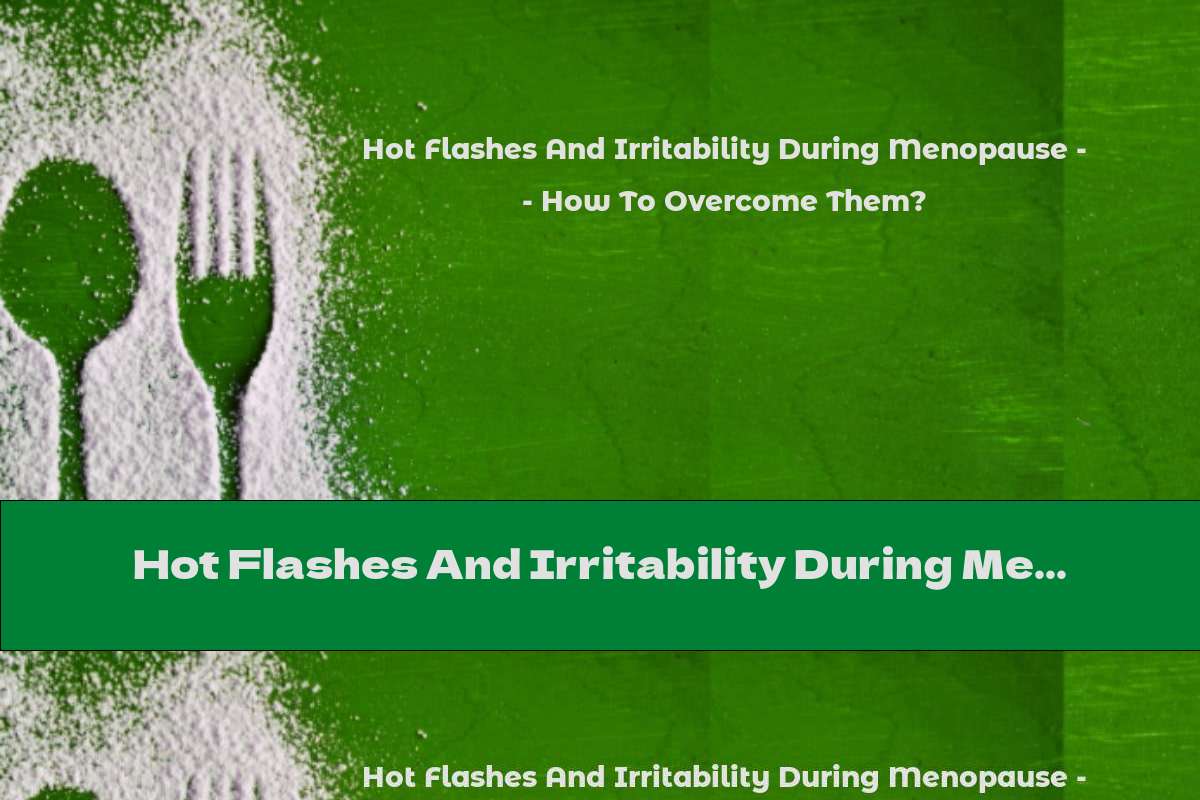Hot Flashes And Irritability During Menopause - How To Overcome Them?
 Author: Maryam Ayres
Time for reading: ~2
minutes
Last Updated:
August 08, 2022
Author: Maryam Ayres
Time for reading: ~2
minutes
Last Updated:
August 08, 2022

In the life of every woman there is a period of menopause, accompanied by a number of changes in the body.
In a woman's life, menopause occurs from a moment , accompanied by a number of changes in the body. Her body gradually loses its reproductive functions. This is the phase of hormonal changes and the transition to a state similar to that before puberty.
Most women go through their last period at the age of about 48-52, but it can happen a little sooner or later. For example, in smokers, menopause usually occurs earlier.
The changes that are observed are related to the work of the pituitary gland and ovaries and a gradual decrease in the formation of hormones such as estrogen and progesterone . Hormonal imbalances often lead to discomfort affecting physical and mental health. Symptoms are usually hot flashes, sweating, insomnia, irritability and mood swings.
Lowering estrogen levels can also have a significant effect on other body functions, such as:
- bone formation (increased tendency to bone loss and osteoporosis);
- skin regeneration ;
- the work of the heart and circulatory system ;
- increase in body weight ;
- problems with concentration and memory ;
- the work of the nervous system .
Despite all these threats, menopause is not a disease, but a natural condition that is characteristic of a certain age. Proper diet and exercise can relieve symptoms and help the body adapt more easily to the new condition.
A balanced diet contributes to good physical condition during and after menopause, but hormonal changes can reduce the body's ability to absorb certain nutrients.
It is extremely important to take soy isoflavonoids during this period. A number of studies have proven the beneficial effect of soy isoflavonoids in the periods before, during and after menopause.
They help reduce the frequency and intensity of heat waves; slowing down the loss of mineral components from the bones, which leads to a decrease in their strength; normal nervous system function and relieve insomnia.
It is also necessary to take calcium and Vitamin D3 , which are responsible for bone strength, and B vitamins , which contribute to the normal function of the nervous system.
During this period, folic acid is also important , which helps with normal blood formation. It stimulates the normal metabolism of homocysteine .
Homocysteine becomes a threat to the cardiovascular system when it begins to accumulate in the form of plaque in the blood vessels. This impedes the flow of oxygen and blood to the organs, as well as the work of the heart.
The combination of phytoestrogens, calcium and vitamins will allow you to stay healthy, beautiful and active. Take care of yourself during the delicate period of menopause - enjoy freedom and active life!
Related Articles
- Post Menopause Diet: A Guide to Nutrition and Health After Menopause
- Post Menopause Diet: Key Nutrients, Plant-Based Foods, and Tips
- Pregnancy Food Pyramid: A Guide to Healthy Eating During Pregnancy
- Post Menopause Diet: Nutrition Tips for Women After Menopause
- Winter Nutrition: Tips for Staying Healthy During the Colder Months